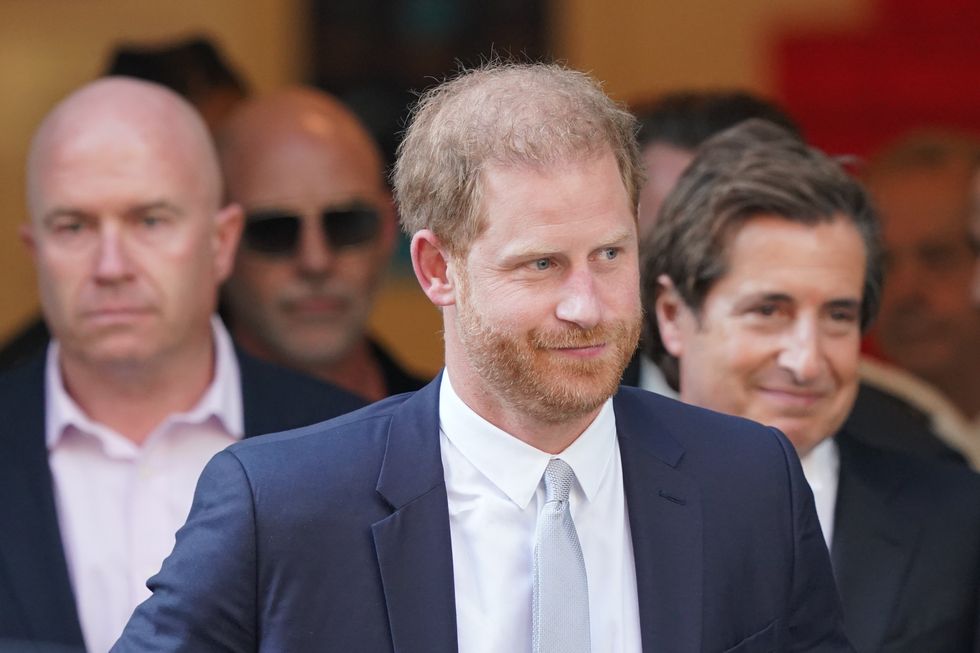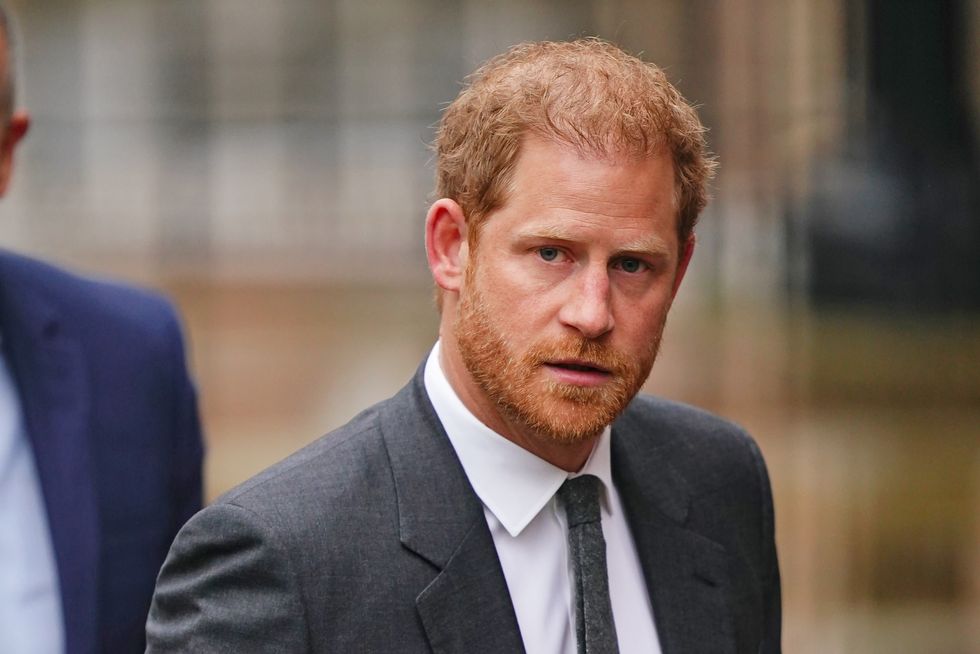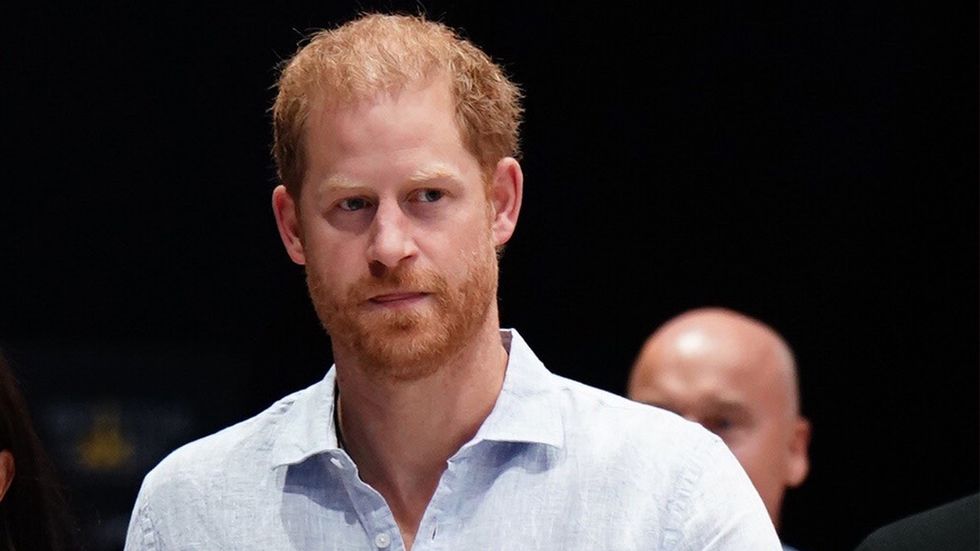Prince Harry handed major victory as judge makes ruling over US visa
Judge Nichols said the public’s interest in Harry’s immigration records is 'outweighed by the duke’s privacy interest'
The Duke of Sussex admitted to taking cocaine, marijuana and psychedelic mushrooms in his book
Don't Miss
Most Read
Trending on GB News
A judge has ruled that the Duke of Sussex’s US visa application should remain private despite him admitting to taking drugs in his memoir.
A conservative think tank challenged why the royal was allowed into the US in 2020 after he referred to taking cocaine, marijuana and psychedelic mushrooms in his book, Spare.
However, in a ruling seen in court documents on Monday, US judge Carl Nichols said: "The public does not have a strong interest in disclosure of the duke’s immigration records."
The judgment added: "Like any foreign national, the duke has a legitimate privacy interest in his immigration status."
 Judge Nichols said the public’s interest in Harry’s immigration records is 'outweighed by the duke’s privacy interest'PA
Judge Nichols said the public’s interest in Harry’s immigration records is 'outweighed by the duke’s privacy interest'PAThe lawsuit was brought by The Heritage Foundation against the Department for Homeland Security (DHS) after a Freedom of Information Act request was rejected.
According to the think tank, the release of the royal's visa documents was of "immense public interest".
However, Judge Nichols said the public’s interest in Harry’s immigration records is "outweighed by the duke’s privacy interest".
He said: "Public disclosure of records about a single admission of a foreign national in the circumstances described above would provide the public, at best, limited information about the department’s general policy in admitting aliens.
LATEST DEVELOPMENTS:

US judge Carl Nichols said 'the public does not have a strong interest in disclosure of the duke’s immigration records'
PA"And the marginal public benefit of knowing that limited information is outweighed by the privacy interest the duke retains in his immigration status and records."
In his memoir, the duke said cocaine "didn’t do anything for me", but: "Marijuana is different, that actually really did help me."
The Heritage Foundation argued that under US law, the use of drugs “generally renders such a person inadmissible for entry” into the country.
When applying for his residency permit, Harry would have been required to fill out a form asking if he had ever used illegal drugs.
Melissa Chavin, who works for the Chapman Immigration Law Office, previously told GB News that Harry is likely to hold an A1 visa - which is given to ambassadors, heads of state and members of the Royal Family.
 A judge has ruled that the Duke of Sussex’s US visa application should remain private despite him admitting taking drugs in his memoirPA
A judge has ruled that the Duke of Sussex’s US visa application should remain private despite him admitting taking drugs in his memoirPAShe said: "I think that the visa Prince Harry is on is something that none of us see, and for me it is very uncommon and rare."
The think tank also raised concerns over the US government’s integrity - if the answers on the duke’s prior drug use in his visa application were disclosed.
In the DHS’s response to the legal claim, it said: "Much like health, financial, or employment information, a person’s immigration information is private personal information."
The submissions made by lawyer John Bardo on behalf of DHS also said no "publicly available information, shows that Prince Harry was ever convicted for a drug-related offence".
GB News has approached The Heritage Foundation and The Sussexes for comment.








